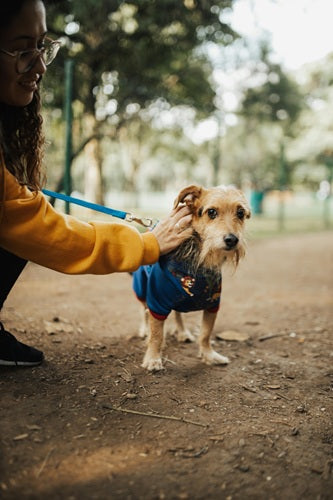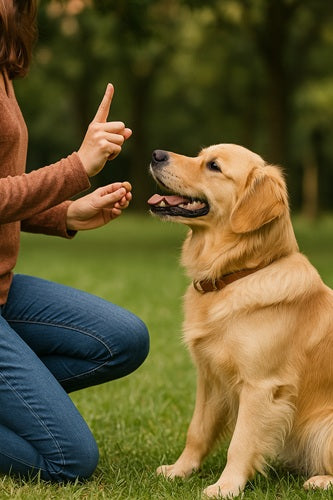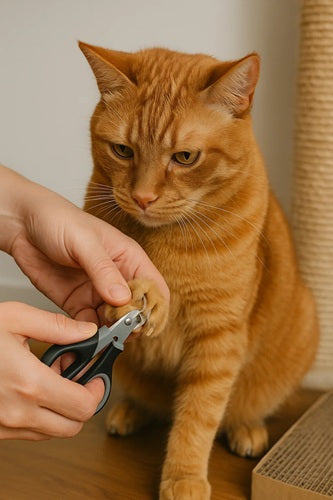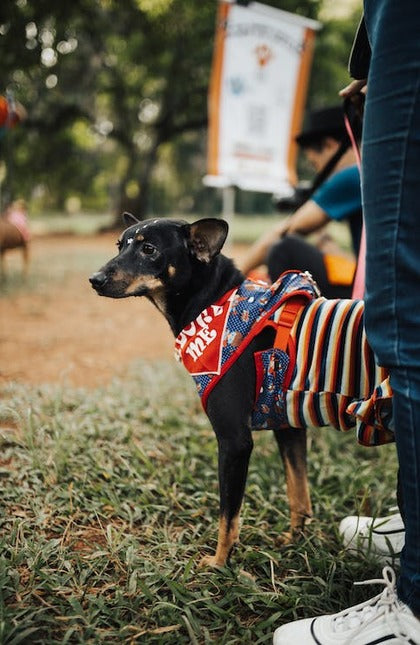How To Socialize Your Dog
Socialization is a process that allows your dog, puppy or adult, to get acquainted with his environment which can include people, other animals and even nature. Ideally, it is best to socialize your dog when he is a puppy because dogs are most sensitive and receptive between this time frame and early socialization is better for your dog and yourself. As dogs grow, it becomes more challenging to socialize them. Let’s explore why socialization is necessary and how it can be done.
Why is socialization important?
Socializing teaches your dog how to react to the world around him in a healthy way, without unnecessary fear or aggression. It teaches him to be mindful of his surroundings, how to behave and interact with other living beings. Well-socialized dogs pave the way to become good canine citizens. Without proper teachings of socialization a dog may become disobedient, aggressive and fearful. Lack of socialization can give rise to various behavioral problems.
How to socialize your dog?
You can socialize any dog - young or old. The major difference is that puppies are naturally curious and eager to learn new things so they grasp on quickly, whereas adult dogs may take longer. Here are some of the ways in which you could help your dog socialize more efficiently:
- Frequent walks:
There are opportunities for socialization on a walk. Your pet gets to meet many different people and dogs, giving him an opportunity to practice proper behavior. During each of these interactions your pet is required to figure out how to interact and behave, teaching him to socialize appropriately. While out on a walk, your pet is also able to take in all the sights, smells and sounds of the neighborhood and feel refreshed, which is all an integral part of socialization.
2. Dog parks:
Dogs need to interact with other dogs as much as they do with humans. Visiting dog parks would allow your dog the chance to interact with his own kind, make friends and play around with them. If you have a dog who always keeps his guard up, don’t force him to interact. Take him to the park and allow him to observe the surroundings from a distance, let him see the dogs play and have fun and gradually encourage him to interact with others. Don’t get discouraged if your pooch doesn’t have a good first visit. Visit frequently and practice slowly in a controlled and balanced manner to get positive results.
3. Puppy classes:
Yes, you read that right! There are classes created specially for puppies to learn socializing skills. He is taught basic obedience skills and learns to socialize with other puppies. Using positive reinforcements, these classes help your puppy to engage in training, social activities and play time. These activities greatly benefit his development as he grows.
4. Invite friends over:
When you invite friends over (make sure to invite no more than two friends) ensure they do not approach, crowd or overwhelm your dog. Let your dog be the first to make a move and approach him only when he is ready. If he does not come over, ask your friend to toss him a treat to show that he means no harm. Ensure a peaceful and laid back environment in which interactions are positive. Over time, as you have frequent visitors, your dog will become more familiarized with them and eventually drop his guard.
5. Interacting with children:
If your dog is socializing properly, you can introduce them to children. These little humans are full of energy and smiles, luring your dog in with their infectious laughter and playful personality. If you have a dog with a skittish personality, ask the children to remain calm or the dog might get scared. Supervise the interaction closely and permit petting only when everyone has gotten comfortable with each other.
6. Daycare for dogs:
Once your dog is appropriately socialized, you might want to consider enrolling him for doggie daycare when you are not at home. Instead of sitting at home alone where he may become restless and aggressive, doggy daycare is a great alternative to keep him entertained and stimulated.
Helpful suggestions-
- Remember to always provide a treat every time your dog successfully socializes with someone. It will encourage him and give him confidence to do it more often.
- You should avoid dog parks, beaches, and neighborhood parks until your puppy is fully vaccinated.
- Puppies can begin socialization classes as early as 7 to 8 weeks.
- Older dogs may not catch up to socializing right away and may take longer than puppies which is why to succeed in this task, plenty of patience, repetition and consistency is required.
Socialization is essential to lead a happy and cheerful life with your dog. Adapting to new situations and environments may be hard for him but with you by his side to help him every step of the way, he can become a well adjusted, social dog.








